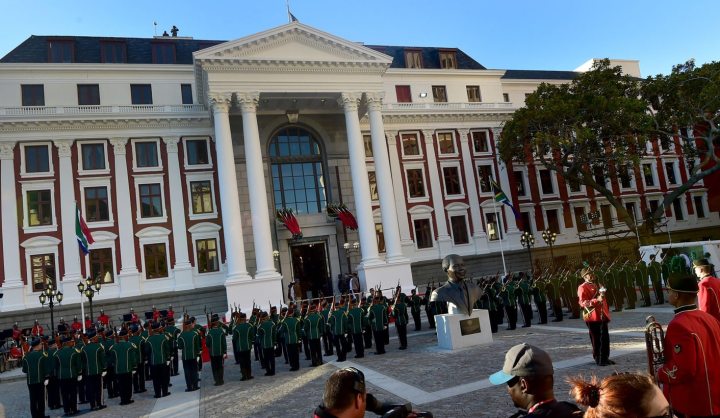South Africa
Notes From The House: Long faces at Parliament tell all

Low morale among parliamentary staff is understandable given that the budget restraints meant no promotions last year or salary notch increases. But that’s not the whole story. Staff is under pressure as posts are frozen and staff numbers are steadily whittled away, according to the latest Annual Report. By MOIRA LEVY.
First Published by Notes From The House
Almost a quarter of parliamentary posts (23%) are currently standing empty, which could in part explain why there is sometimes a sense that Parliament is not doing its job properly.
Management would deny this figure. It puts the official vacancy rate at 4.83%, which amounts to a mere 67 vacant posts. But what that doesn’t reflect are the 327 posts that were frozen in the 2016/17 financial year for cost-cutting reasons.
Budget restraints are understandable, and some would say the civil service as a whole is bloated and drains the fiscus. But dispensing with almost a quarter of staff posts must leave the remaining parliamentary staff under some strain.
It is generally difficult to find a happy parliamentary employee, and the figures on staffing cuts, which were published in Parliament’s annual report, may go some way to explaining why morale at the institution is seriously low.
Hardest hit has been the category known as “highly skilled production” staff, which lost 141 posts. Add to that the normal attrition from staff turnover, and these employees, who provide Parliament’s legal advice and general political backup in the form of research, citizen outreach, information dissemination, legislative development and Committee support, now have the additional work of 176 frozen or vacant posts to contend with.
No wonder the sick leave rate among these “highly skilled production” staff is more than 50%, much higher than the roughly 10 to 20% among the lower skilled staff and less than one percent in senior management. Parliament lost R20,000 during the year due to sick leave.
A total of 42 “highly skilled” production and supervisory staff resigned from the institution during the financial year, which amounts to a significant loss of skill and institutional memory, and leaves our parliament inevitably struggling to perform at its peak.
The figures on promotion may go some way to explaining this brain drain. Of 1,376 parliamentary employees there were only nine promotions during the year, representing three percent of staff. No one at all was pushed up to a higher salary scale traditionally Parliament’s way of thanking and rewarding high performing employees and not a single employee below senior management level received a performance bonus.
No wonder the long faces.
Parliament’s salaries are not to be sniffed at, and given the unemployment rate in South Africa’s current recession, one does wonder why anyone would leave a well-paid job, moreover one that should provide the job satisfaction of serving one’s country.
Exit interviews are supposed to be held, but the report on “Reasons Given” for resignation gives no reasons at all. These departures are lumped into a single category called “Resignation”. It is telling that 20 people opted for early retirement during the year. Only four hardy individuals lasted the stretch until retirement age.
Three contracts were not renewed, and as only senior staff are employed on contract, this points to further loss of important skills. It also means a lot of money lost to Parliament. In total R2 357 714,65 was paid out for termination of services.
On Parliament’s overall human resource performance, 18 new staff members were employed during the year under consideration.
It is noteworthy that not one of these was disabled. Parliament declares itself strongly committed to redressing discrimination and employment equity but despite its targets, only 58% of its total staff complement is black African, which is nowhere near the South African demographics.
Parliament does have impressively progressive HR policies, which it regularly expounds, but it hasn’t reached its specified targets or demonstrated that it can do so. DM
Thanks to the Parliamentary Monitoring Group for publishing Parliament’s regular annual report. Parliament and all government departments, including their related entities, are required by law to account in this way. Access all annual reports
Photo: Members of the Defence Force parade at the Parliament precinct for SoNA 2017), with President Jacob Zuma observing the 21 gun salute. 09/02/2017. Photo: Kopano Tlape GCIS















 Become an Insider
Become an Insider